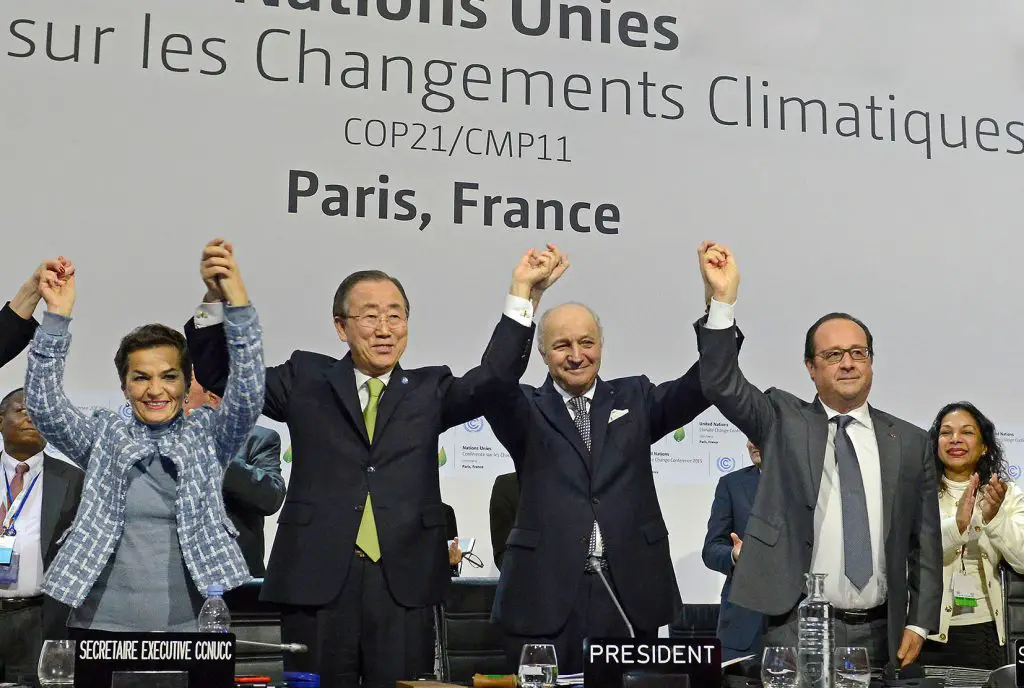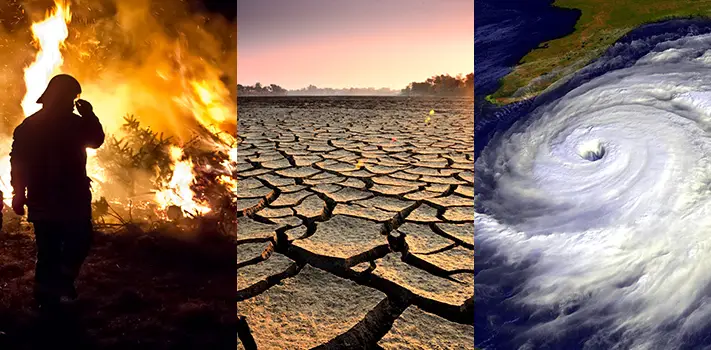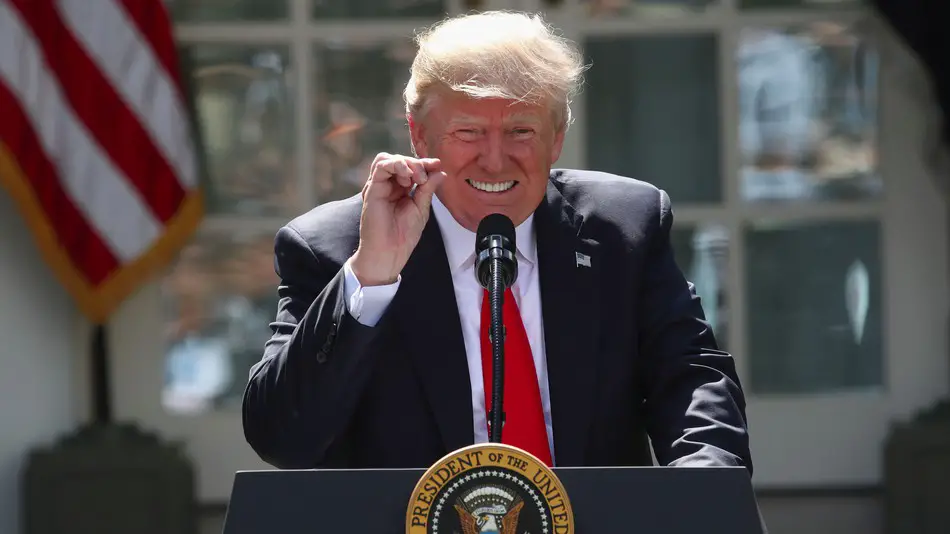Contempt and Cataclysm
Counter to Trump’s logic, his decision will harm the world economically, environmentally and diplomatically.
By Miguel Robles, University of Colorado Denver
On June 1, Trump announced that he would pull the U.S. out of the Paris Climate Accord, making the U.S. one of only three nations in the world not to join the agreement.
The other two are Nicaragua and Syria. Nicaragua decided against signing the agreement in the belief that the accord didn’t go far enough in combating climate change. Syria is in the midst of a bloody civil war. What’s Trump’s excuse? In his own words, that he “was elected to represent the citizens of Pittsburgh, not Paris.” (How ironic.)

The decision was met warmly within Trump’s party (the party known to harbor many climate-change deniers, including government officials sponsored by fossil fuel corporations), yet the majority of Americans are unequivocally opposed to the decision. A group of mayors, governors, business leaders and university presidents are planning to submit a plan to the United Nations, which, in effect, would honor the original agreement and adhere to the guidelines set out in the accord. At the same time, without the resources of the federal government, only so much can be done.
However, Trump has already shown that any presidential policy is only safe as long as that president remains in office. He is in the middle of a messy investigation, and there is no guarantee that he will serve out his full term.
The question remains: Just how disastrous could the pull-out be in the foreseeable future?
Economically
While Trump asserted that his decision was to defend American industry, it will most likely have the opposite effect. Trump seems to be holding on to the antiquated belief that the fossil-fuel industry is where the jobs and money are. In 2017, that’s simply no longer the case. The numbers are plain; there are more jobs in clean energy, and it’s cheaper to adopt clean energy policies.
The fossil fuel industry in 2016 was responsible for producing 187,117 jobs in energy generation (86,035 in coal, 52,125 in natural gas, 36,117 in advanced gas and 12,840 in oil). In comparison, the clean-energy-generation market produced about four times that amount, with a total of 475,545 jobs in 2016 (373,807 in solar and 101,738 in wind).
Utilizing solar panels is also cheaper and more efficient than fossil fuels. To put it in perspective, solar plants placed across a few counties in Texas could supply the entirety of the electricity for the U.S. California proves that this efficiency isn’t just theoretical. In May, they used renewable energy to power 80 percent of their total energy consumption. Why? Because renewable energy is cheaper than carbon.
The discrepancy could end up costing American businesses direly, as they have to operate at a higher cost than those utilizing clean energy. Foreseeing this conclusion, Apple, Facebook, Mars Inc. and Morgan Stanley published a letter urging for innovation of clean technology.
None of this suggests that pulling out of the Paris agreement would be good for the American economy. Rather, it could have catastrophic effects on an economy that’s just getting back on track.
Environmentally
Obviously, the greatest impact the pull-out will have is on the environment.
Leaders from every country in the world were brought together at the UN Climate Change Conference to solve one simple, yet complex issue—reducing global warming. What came out of the historic meeting was the goal to limit the twenty-first century’s global average temperature increase to no more than 2 degrees Celsius above pre-industrial era (1850-1900) numbers.

To achieve this goal, the world leaders agreed to adopt clean energy sources and cut down on greenhouse-gas emissions. The United States would have played a pivotal role in achieving this goal. As the world’s biggest polluter, the U.S. is “responsible for almost a third of the excess carbon dioxide that is heating the planet,” according to the “New York Times.” Today, China is the biggest CO2 emitter overall, but per capita, American CO2 emissions more than double those of the Chinese.
Under the Obama administration, the U.S. vowed to cut emissions by 26-28 percent below the 2005 levels by 2025. In addition, the Obama administration pledged $3 billion to the Green Climate Fund in an effort to assist developing countries in reducing emissions. When Trump made the decision to renege on these commitments, the earth and future generations were put in serious jeopardy. The U.S. was responsible for about a fifth of the cut emissions in the agreement. Without the significant changes in U.S. energy policy set out in the Paris Accord, the U.S. could, at best, cut emissions by 15-19 percent below 2005 levels by 2025, which is well below the 26-28 percent figure set out by the Obama administration.
Without the U.S., the temperature goal set out in the Paris Agreement may not be attainable. Climate Interactive calculates that without the U.S. adhering to the Paris Accord requirements, even if every other country honored their pledge, the average global temperature would rise well above the 2.0 degree limit (3.6 degrees Celsius.) Trump also plans to drop Obama’s commitment to help developing countries reduce their carbon footprints, only $1 billion of which has already been paid out.
Furthermore, the U.S. pullout could have a domino effect on the other countries in the agreement. Without its major contribution, countries on the fence may also begin to pull out of the agreement. Of the original 196 signees, only 147 of them have officially ratified it. Russia, a major piece in the puzzle, remains supportive of the agreement, but admitted that the goals of the agreement wouldn’t be as effective without the participation of major countries. With the U.S. pulling out, who knows how the rest of the signees will react?

If the Paris agreement falls apart, the results will be catastrophic. Without the significant changes set out in the agreement, the temperature is projected to be 4.2 degrees warmer than pre-industrial averages by 2100.
Please, click here, here and here to see the (simplified) projected environmental consequences of each degree increase. You may want to hold someone’s hand.
Internationally
The pull-out was a slap to the face for the international community. The Paris Agreement was the result of years of hard work to just get the world leaders to the table and discuss climate change. And one man may have just unraveled all of it.
The pull-out takes the U.S. out of the leadership role of arguably the most important global issue in recent memory. At the same time, it fails to rebrand the American legacy of being the biggest polluter in history. The international community has already shown their distaste for Trump, but, for many, this crosses the line.
UK’s “The Guardian” writer David Suzuki says, “Trump passed on the best deal the planet has ever seen.” BBC correspondent Matt McGrath wrote, “the world’s not laughing, Donald, it’s crying.” A “Daily Mail” headline reads, “The world unites to condemn Trump.”
Papers across Europe had a harsher message. The German tabloid “Berliner Kurier” headlined their cover with the message “Earth to Trump: Fuck You!” while the French paper “Le Figaro” said it was Trump who had “given the finger to the rest of the world.”
Even North Korea, a truly effed-up place but a participating member of the Paris Agreement nonetheless, condemned the president’s decision. The Ministry of Foreign affairs branded the decision as “shortsighted and silly.” An unnamed official went further, saying, “this is the height of egotism and moral vacuum seeking only their own well-being at the cost of the entire planet.”
As an American, I’m ashamed that my president would put personal politics and imaginary money over the well-being of the entirety of the world.











[…] legacy of the Obama administration, was significantly sidetracked when President Trump decided to pull the U.S. out of the deal, less than six months into his […]